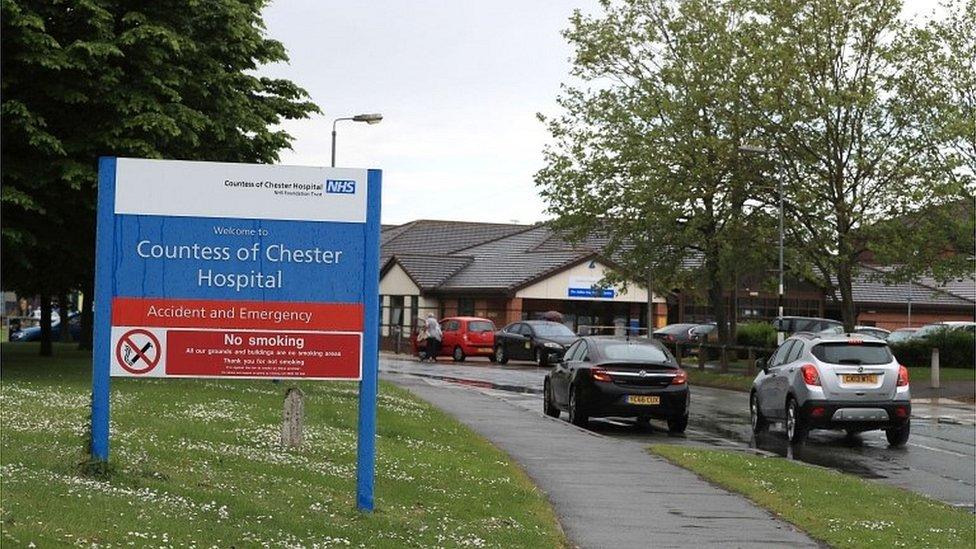Countess of Chester Hospital: Funding threat in patient row
- Published
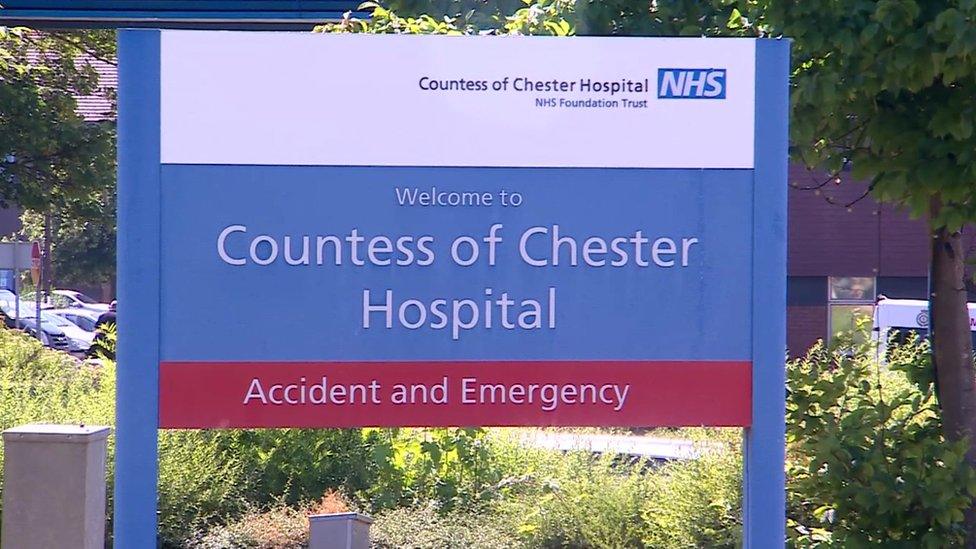
About a fifth of Countess of Chester Hospital's yearly patients are from north east Wales
Wales will no longer provide funding to an English hospital if it will not take in its patients, the First Minister Mark Drakeford has said.
Countess of Chester Hospital made a decision on Thursday that will impact thousands of people in Flintshire who use its services.
Welsh patients can still use its A&E department and it will still accept maternity cases.
The hospital said it was an issue relating to a complex NHS market.
Hospital chief executive Susan Gilby said: "Discussions are ongoing between national leaders and we are hopeful that we will be able to return to accepting new referrals from our Welsh commissioners once national agreement has been reached."
She added: "My first concern is patient safety. In order to ensure this, the trust must be financially sustainable.
"To accept referrals without the appropriate funding would place our services and our patients at great risk."
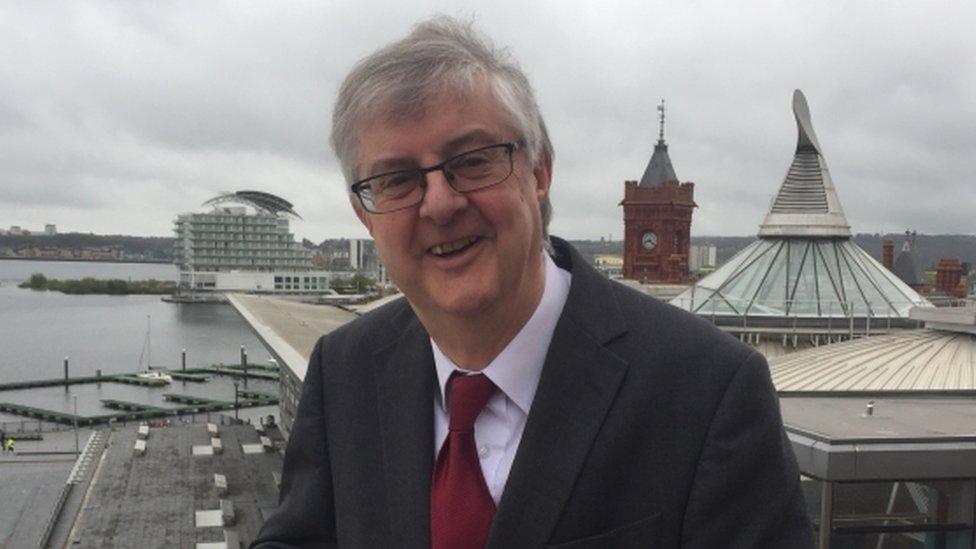
First Minister Mark Drakeford said "we have always paid our bills"
Speaking at a Welsh Assembly scrutiny committee, Mark Drakeford said if the Countess of Chester did not provide services then it will "have to face up to facts" that funding from Wales "is not going to flow to them in future".
"There is a very direct interest that they have at stake here, which they sometimes, seems to me, underplay in the public statements that they make," he said.
"Welsh patients are part of their bottom line, in the way that the English system is run."
Mr Drakeford said the immediate focus in resolving the problem should be via a "sensible agreement" between both sides.
"Some sense of reciprocity is essential in all of this - and reciprocity from the Countess of Chester needs to be part of that conversation," he said.
"Over the period of devolution, there are regular suggestions from English providers that sometimes Wales doesn't pay our bills.
"Every time that has been looked at that, that has turned out not to be true. We have always paid our bills."
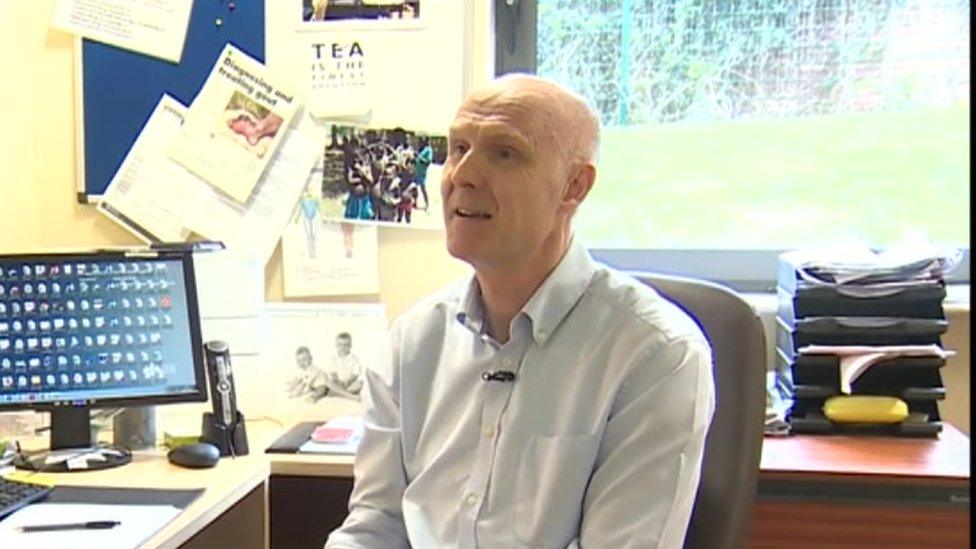
Dr Mark Harney would like to see the decision reversed
Dr Mark Harney, a GP in Connah's Quay, Flintshire, said he was told of the "disappointing" change via email on Thursday afternoon.
He said that, over the years, patients have developed "great relationships" with the "excellent" Countess of Chester Hospital.
"It's on our doorstep, it's the nearest one, it's where all the 999 calls go to," Dr Harney added.
"It's just so much more accessible, the Countess of Chester, it's less than 10 miles from here."
He went on to say he would "really like it if they could just revisit that decision, because we're cross-border here, it's the nearest one to us."
"We'd like it to be reversed, and we'd like to have the choice - patients want the choice.
"We're a national health system after all, I know the health system in Wales is devolved, but we're still one nation."
'Sort this out'
Speaking to BBC Radio Wales, Wrexham-based GP Dr Peter Saul said: "They [both sides] should have reached an agreement and they certainly shouldn't have put patients at risk.
"They shouldn't be taking unilateral action, they need to get back together and sort this out.
"One of the problems that is already happening is that if we can't send patients to hospitals that have traditionally taken them, it puts an additional strain on hospitals on the Welsh side of the border and they are already struggling with capacity."
Dr Eamonn Jessup, a locum GP in north Wales added: "North Wales does not have enough capacity for the demand upon it as it is, a sudden influx of patients like this will cause the service to collapse."
The Robert Jones and Agnes Hunt Orthopaedic Hospital NHS Foundation Trust, in Gobowen, Shropshire, said it had no current funding issues with the Welsh Government.
But it added it was "aware of a potential issue emerging for the forthcoming year that we understand is being discussed between the Department of Health and Welsh Government".
Shrewsbury and Telford Hospital NHS Trust, which is the main provider of general hospital services for Shropshire, Telford & Wrekin and mid-Wales, said it was not affected.
- Published4 April 2019
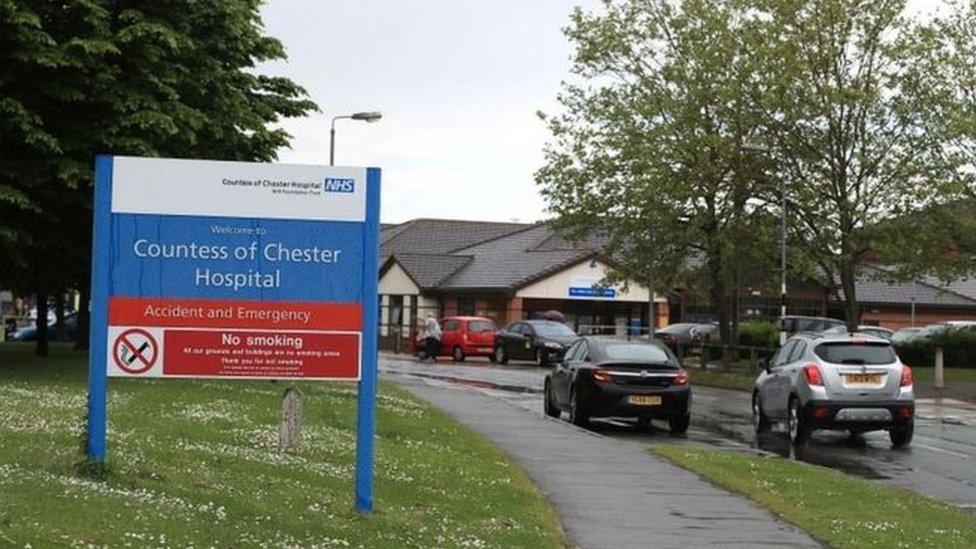
- Published23 October 2018
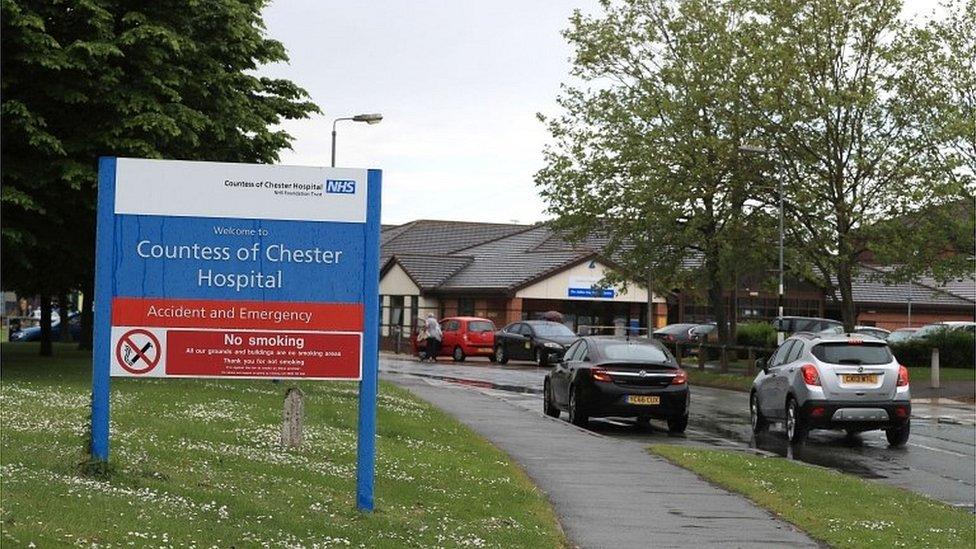
- Published20 September 2018
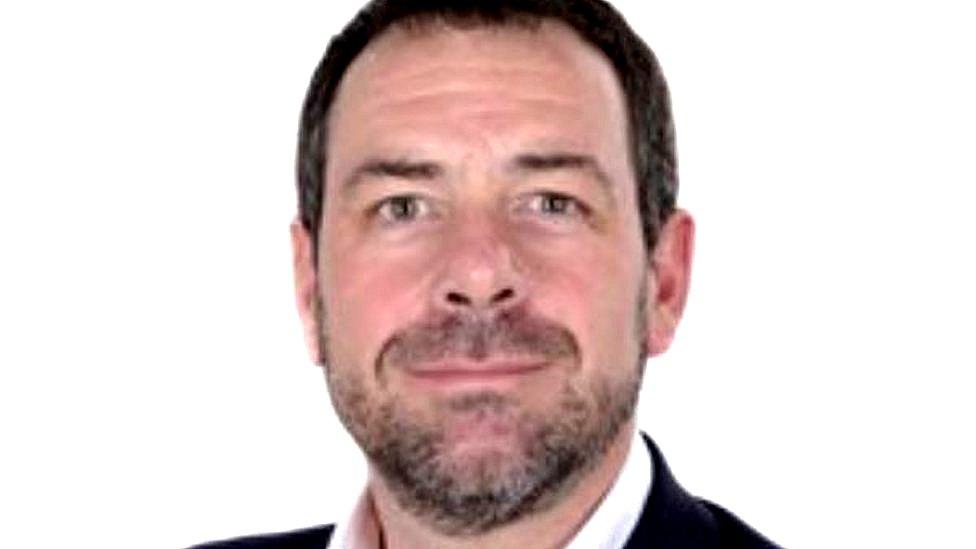
- Published20 December 2018
